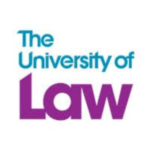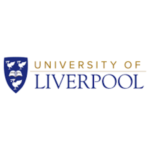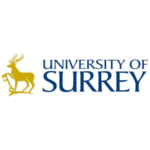About UK


English Language

Pound currency

6.7 cr. Population

160 Universities

139,539 Indian Student

3.09 Lakh Cr. USD
Why Study In UK
- Quality Education: The UK has some of the best academic standards in the world, and the government has been maintaining the quality of education for many years.
- Cultural diversity: The UK is home to people from all over the world, making it a great place to experience and learn about different cultures.
- Multicultural Environment: The UK is a melting pot of cultures, offering a welcoming and inclusive environment for international students. You’ll have the chance to interact with people from all over the world, expanding your horizons and building a global network.
- Employability: UK graduates are considered to be some of the most employable in the world. UK institutions offer support to students to gain professional experience through internships and placements.
Fees for Study in UK
The cost of studying in the UK can vary depending on various factors, including the level of study, university, program, location, and your personal lifestyle choices. However, here is a general overview of the costs involved

| S. No. | Study Program | Average Tuition Fees |
|---|---|---|
| 1. | Undergraduate Degree | £11,400 to £38,000 per year (12 - 38 Lakh INR) |
| 2. | Postgraduate Degree | £18000 to £30,000 (18 - 35Lakh INR) per year |
| 3. | Doctoral Degree | £30,000 to £45,000 (30 - 45 Lakh INR) per year |
Scholarship Study In UK
| S. No. | Name of Scholarship | Details |
|---|---|---|
| 1. | Chevening Scholarships | The UK government scholarship program for international students provides full funding for a one-year master's degree for any university in the UK. It covers tuition fees, living costs, travel expenses, and other allowances. |
| 2. | Commonwealth Scholarships | Awarded to a student from Commonwealth countries for postgraduate research in the UK. It Covers tuition fees, living expense, travel expense and other allowance. |
| 3. | GREAT Scholarships | Jointly funded by the UK government and the British Council, offer partial funding for a year master's at selected UK universities. |
| 4. | Charles Wallace India Trust (CWIT) Scholarships | The Charles Wallace India Trust (CWIT), offers a variety of scholarships and grants to Indian students who work or study in the arts, heritage conversation, or humanities. These scholarships aim to provide financial assistance and opportunities for personal and professional development through spending time in the UK. |
Living Cost In UK
The cost of living in the UK for international students can vary significantly depending on the location and your lifestyle choices. However, here’s a general breakdown to give you an idea:
Monthly Average Living Costs: £900 – £1,300
Yearly Average living costs: £1,300 – £1,400
- Accommodation: This is typically the biggest expense. It can vary depending on the city, type of accommodation (university halls, private accommodation, shared flat), and location.
- Food: Groceries, eating out, and takeaways. Cooking your own meals can be more cost-effective.
- Transportation: Public transport, bicycle, or walking. The cost can vary depending on the city and frequency of travel.
- Other expenses: Electricity, Phone, Internet, Gas ETC.
Living Cost In UK
The cost of living in the UK for international students can vary significantly depending on the location and your lifestyle choices. However, here’s a general breakdown to give you an idea:
Monthly Average Living Costs: £900 – £1,300
Yearly Average living costs: £1,300 – £1,400
- Accommodation: This is typically the biggest expense. It can vary depending on the city, type of accommodation (university halls, private accommodation, shared flat), and location.
- Food: Groceries, eating out, and takeaways. Cooking your own meals can be more cost-effective.
- Transportation: Public transport, bicycle, or walking. The cost can vary depending on the city and frequency of travel.
- Other expenses: Electricity, Phone, Internet, Gas ETC.
Top Universities IN UK












Top Courses In UK
- Business and Management
- Engineering and Technology
- Medicine
- Law
- Creative Arts and Design
- Psychology
- Computer Science
Intake In UK
UK Universities offer major 3 intakes for international students:
- Fall intake – September/October
- Winter intake – January/February
Student VISA guidelines
The UK student visa is an immigration permission granted to international students who wish to study in United kingdom. The Student Visa is intended for individuals aged 16 and over who wish to pursue courses lasting more than six months. This visa enables students to stay in the UK for the duration of their studies, work part-time while enrolled, and provides the opportunity to apply for post-study work options upon completion of their course.
Eligibility Requirements:
- Have unconditional offer letter from a recognized educational institution.
- Need to prove that you can support yourself financially while studying in the UK, covering tuition fees and living costs.
- Need to demonstrate English language proficiency test.
Application Process:
You can apply for student visa up to six months before your course start.
- Apply to the university and receive Confirmation of Acceptance for Studies (CAS).
- Collect the required documents:
- A valid passport.
- Confirmation of Acceptance for Studies (CAS).
- Proof of funds to cover tuition fees and living expenses.
- Tuberculosis Test report.
- Complete the visa application form on the UK government website. Pay the visa
Application fees and the Immigration Health Surcharge (IHS).
- Schedule an appointment at a visa application center to provide biometric information.
- Submit your application along with all required documents at the appointment.
- Wait for visa outcome.
FAQ (Frequently Asked Question)
- The UK is home to world-renowned universities, offers high-quality education, and has a rich cultural heritage. Graduates from UK institutions are highly regarded globally, and the country provides numerous opportunities for personal and professional growth.
- Admission requirements vary by university and program. Generally, you will need academic transcripts, a personal statement, letters of recommendation, and proof of English language proficiency (such as IELTS or TOEFL scores).
- Most applications to undergraduate programs are made through UCAS (Universities and Colleges Admissions Service). For postgraduate programs, you typically apply directly to the university via their online application system.
- Most UK universities require proof of English language proficiency. Commonly accepted tests include IELTS, TOEFL, and PTE. Minimum score requirements vary by university and program.
- Yes, there are various scholarships available for international students, including those offered by the UK government, universities, and private organizations. Examples include the Chevening Scholarship, Commonwealth Scholarship, and university-specific scholarships.
- Yes, international students on a Tier 4 (General) student visa can work up to 20 hours per week during term time and full-time during holidays. However, it’s important to check specific visa regulations.
You will need to apply for a Tier 4 (General) student visa. The process involves completing an online application, paying the visa fee, providing a Confirmation of Acceptance for Studies (CAS) from your university, and attending a visa appointment for biometric information.
- UK universities offer a range of support services, including academic advising, language support, career counseling, mental health services, and assistance with accommodation and visa issues.
About
Yarab Global Education & Migration Consultancy India Pvt. Ltd is a registered Consultancy based in India.
Find us on:
Study Destination
Test Prep
- IELTS
- PTE
- TOEFL
Branch Offices
Delhi
- +91-9319361977
- admissions@yarabglobal.in
Kerala
- +91-9319361977
- kerala.info@yarabglobal.in
